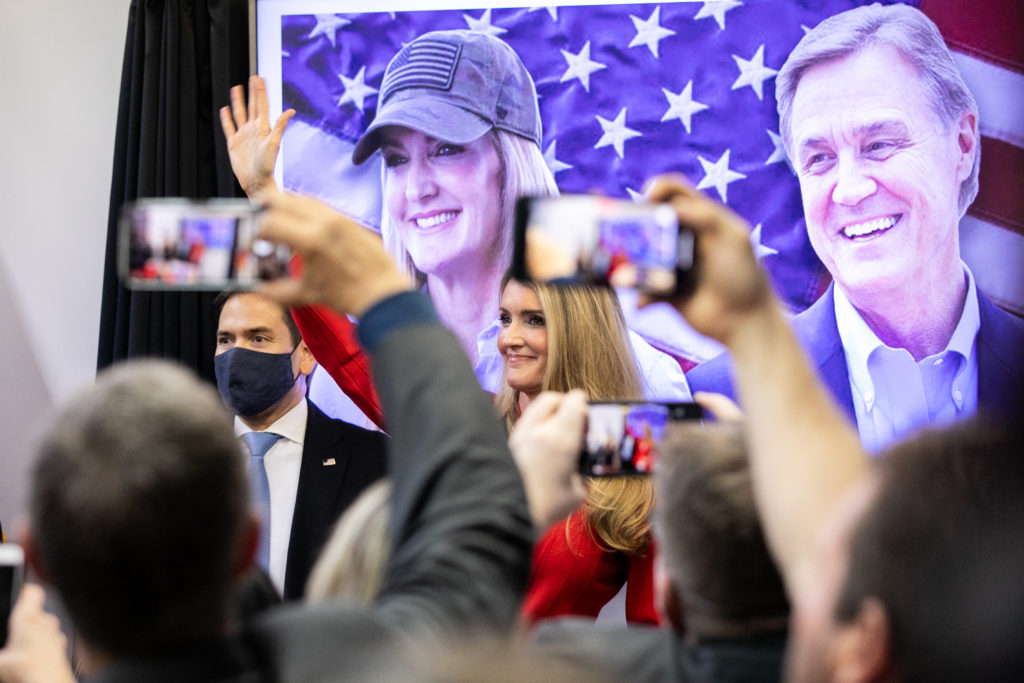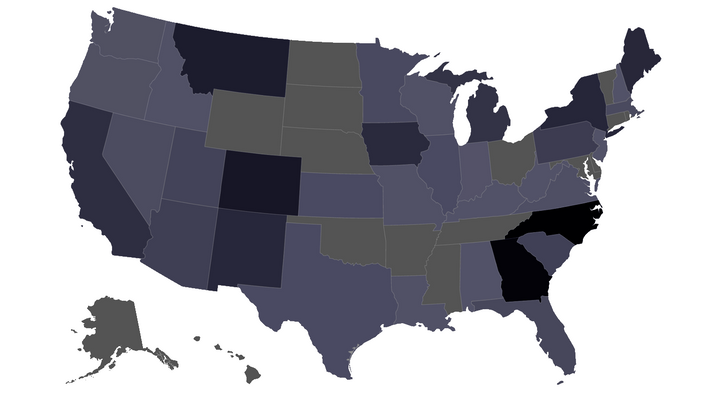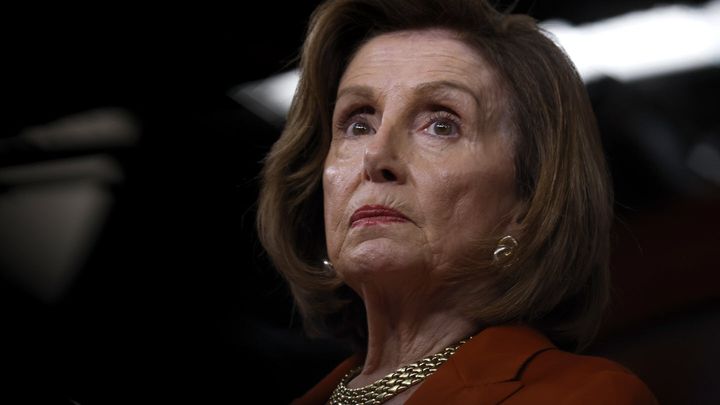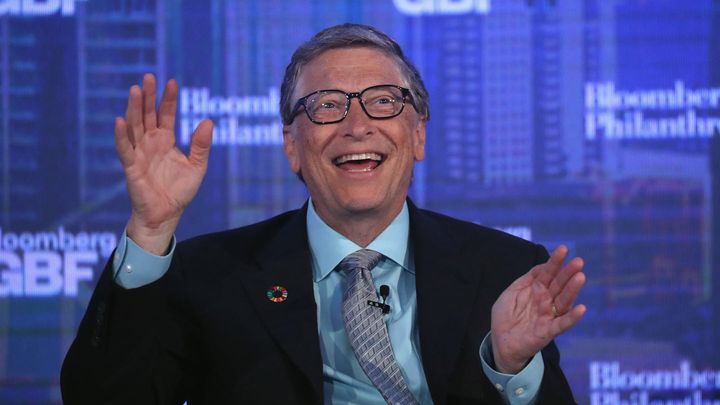With the exception of some billionaires, political operatives, and libertarian think tank fellows, just about everyone agrees that it should be possible to look up who is funding the groups spending money to influence elections. Yet, money that can’t be traced back to its original source has steadily poured into politics since the Supreme Court’s 2010 Citizens United ruling opened the door for corporations to launder political expenditures through nonprofits that are not required to disclose their donors.
In 2020, non-disclosing nonprofits—so-called “dark money” groups—spent more than $44 million on U.S. House and Senate races, according to Sludge’s analysis of data from the Center for Responsive Politics.
PACs that disclose their donors to the Federal Election Commission but reported taking funds from dark money groups spent more than $1 billion on 2020 congressional races. These PACs, whose spending is sometimes called “gray money” because they mix funds from disclosed sources with funds from entities that don’t disclose their donors, were responsible for the largest share of total outside spending in the 2020 election cycle for the first time.
Scroll over the map below to see the top gray money spender in each state:
A huge chunk of gray money was spent by the four super PACs that are affiliated with the Democratic and Republican leaders of the Senate and the House. As Sludge previously reported, the super PAC affiliated with Democratic Senate leader Chuck Schumer, Senate Majority PAC, and the one affiliated with Democratic House Speaker Nancy Pelosi, House Majority PAC, had both taken more dark money than in any prior cycle by the second quarter of 2020.
The House Republican leader’s super PAC, Congressional Leadership Fund (CLF), also took more dark money than in any past cycle. In several of the House races where Republicans defeated Democratic incumbents, CLF was the largest outside spender. The group spent more than either of the candidates in some of the races.
A Fix for Democracy – Following the Supreme Court’s 2010 decision in Citizens United, which banned limits on political spending by corporations, unions, and other groups, “dark money” has dramatically increased in federal and state elections. To help voters understand who is funding campaigns and political ads, the U.S. Congress and state legislatures can pass laws that require all groups who spend money on politics, including LLCs and nonprofits, to disclose the original source of their funding. Learn more🤔
CLF and the Mitch McConnell-aligned Senate Leadership Fund both reported to the FEC that their largest donors were dark money groups. American Action Network, a nonprofit, gave CLF $26.4 million this cycle. The two groups share key personnel like Dan Conston, the president of both organizations, and Corry Bliss, who was executive director of both groups in the 2018 cycle. Senate Leadership Fund’s top donor was the nonprofit One Nation, which contributed $62.6 million. One Nation is registered to a law firm in Virginia called Holtzman Vogel Josefiak Torchinsky that has other prominent dark and gray money clients like Karl Rove’s American Crossroads super PAC and Charles Koch’s Americans for Prosperity nonprofit advocacy group.
The top beneficiary of GOP gray money spending was Sen. Thom Tillis (R-N.C.), who was recently declared the victor against Democratic challenger Cal Cunningham. Senate Leadership Fund spent $47 million against Cunningham, followed by American Crossroads with $23.7 million, NRA Victory Fund with $7.3 million, and Faith and Power PAC, which was solely funded by Senate Leadership Fund, with $2.5 million.
In the Georgia Senate race between Republican Sen. David Perdue and Democratic challenger Jon Ossoff, the Senate Leadership Fund was the top outside spending group, with over $43.5 million spent to its Democratic counterpart’s nearly $31.3 million, according to the Center for Responsive Politics. All outside groups spent close to $70 million backing Perdue in the race.

Nonprofits that don’t disclose anything about their funding sources made up a smaller, but potentially more troubling portion of spending on congressional races. While some of the groups have names that would suggest to voters their affiliation with known groups like the Humane Society or the National Association of Realtors, most of them have generic sounding names that tell voters nothing. Among these groups are The Future We Need, Desert Leadership Fund, Avacy Initiatives, and Independent Women’s Voice.
Many of these groups are set up as 501(c)(4) nonprofits, which are supposed to dedicate at least 51% of their activities to the furtherance of social welfare, according to Internal Revenue Service guidance. Most of these groups, however, appear to merely be shells for funneling money from anonymous donors into political ads and super PACs. Groups like Avacy Initiatives, which spent $296,000 to support Rep. Eliot Engel (D-N.Y.) who was defeated by progressive primary challenger Jamaal Bowman, sometimes set up cookie-cutter websites with generic mission statements about their social welfare work, but in many cases there is no evidence that they do anything besides running political ads.
The Supreme Court recognized the potential for dark money in politics in its Citizens United ruling and called on Congress to pass legislation to require donor disclosure. In 2010, the Democrat-controlled Senate brought such a bill, the DISCLOSE Act, to a vote, but came one vote short of the 60 they needed to invoke cloture and proceed with consideration of the measure. The bill had already been approved by the House and President Obama was prepared to sign it.
Democrats lost a Senate seat earlier in the year in a special election to replace Democratic Massachusetts Sen. Ted Kennedy when Republican Scott Brown defeated Democrat Martha Coakley, who barely campaigned in the weeks before voters went to the polls. Coakley would have almost certainly provided the 60th vote needed to proceed with the DISCLOSE Act if she had been elected in heavily Democratic Massachusetts.
Read more from Sludge:



